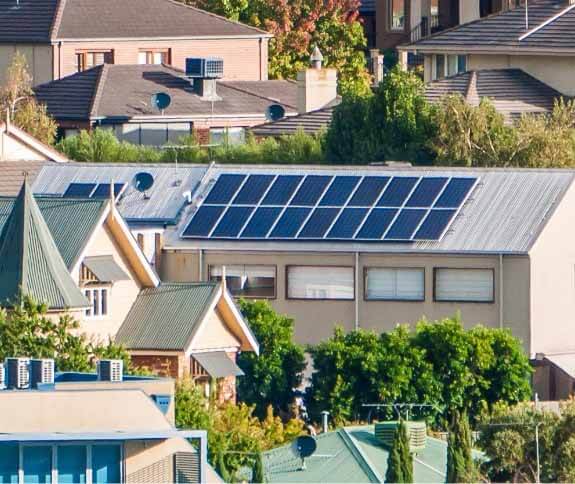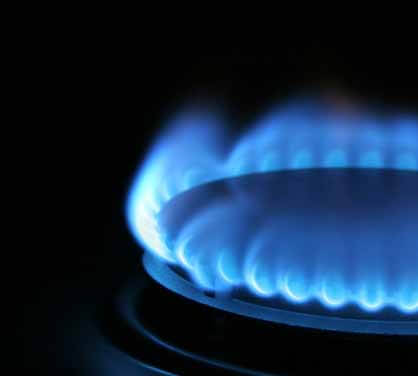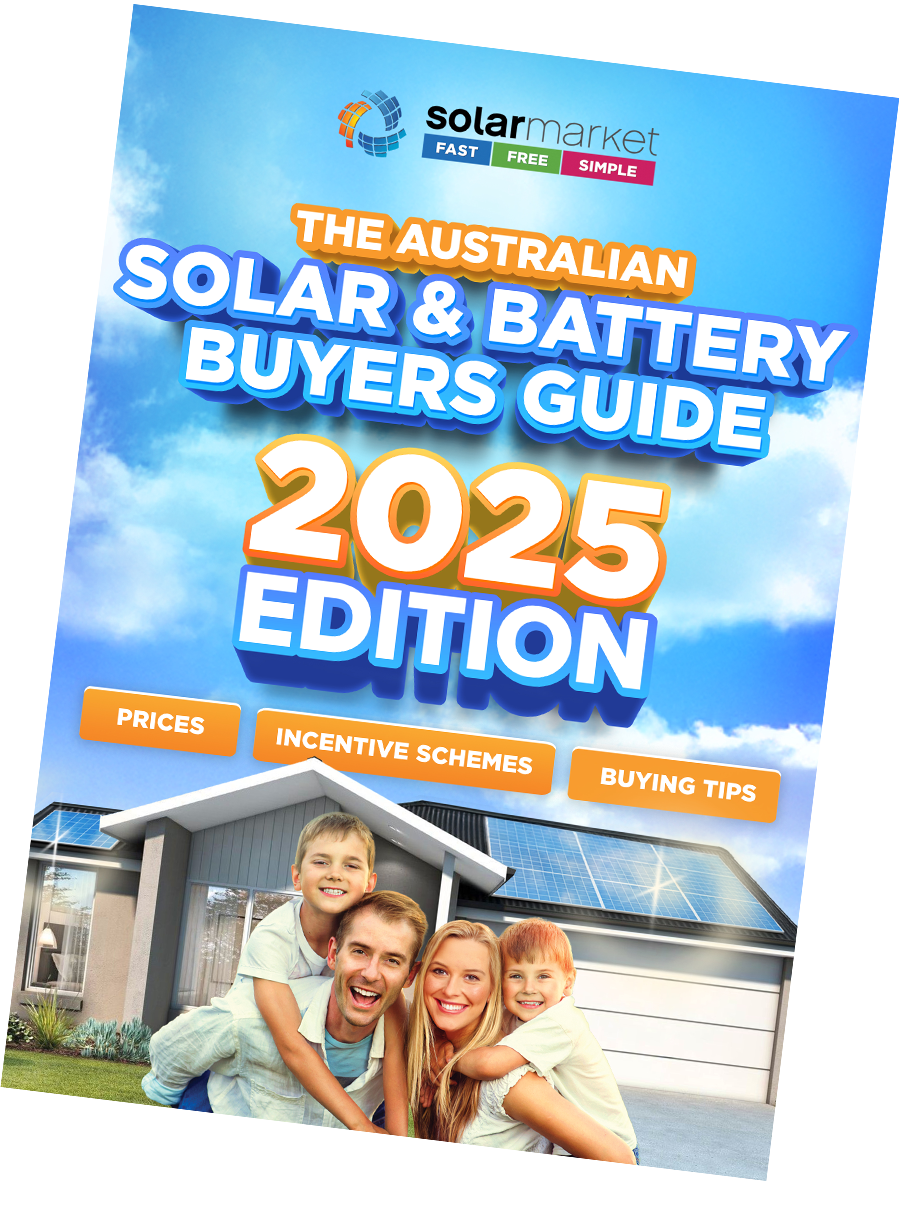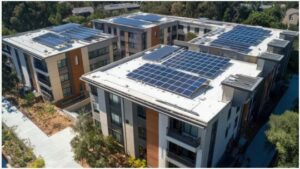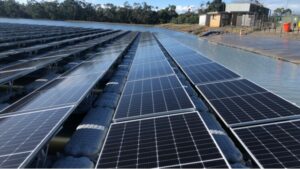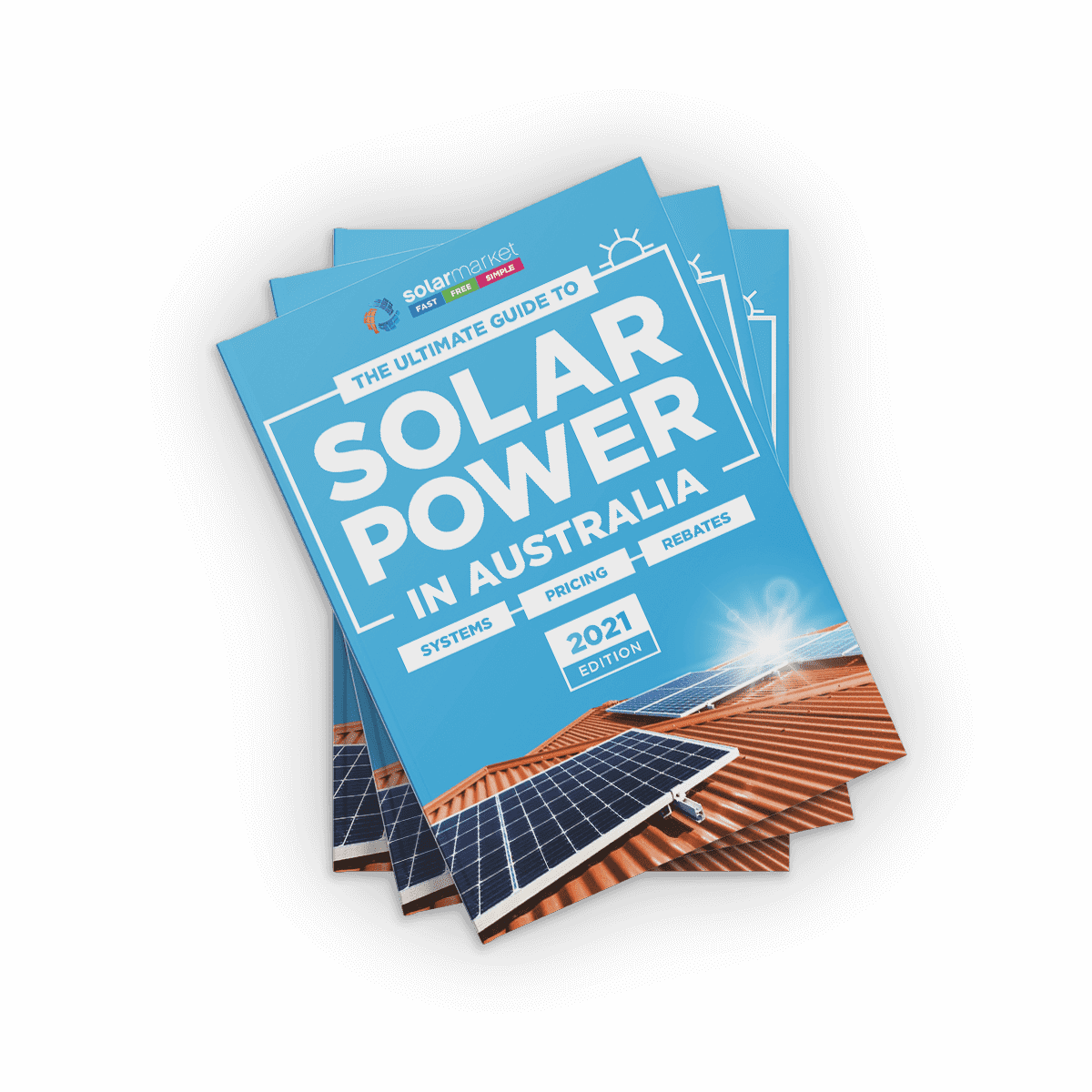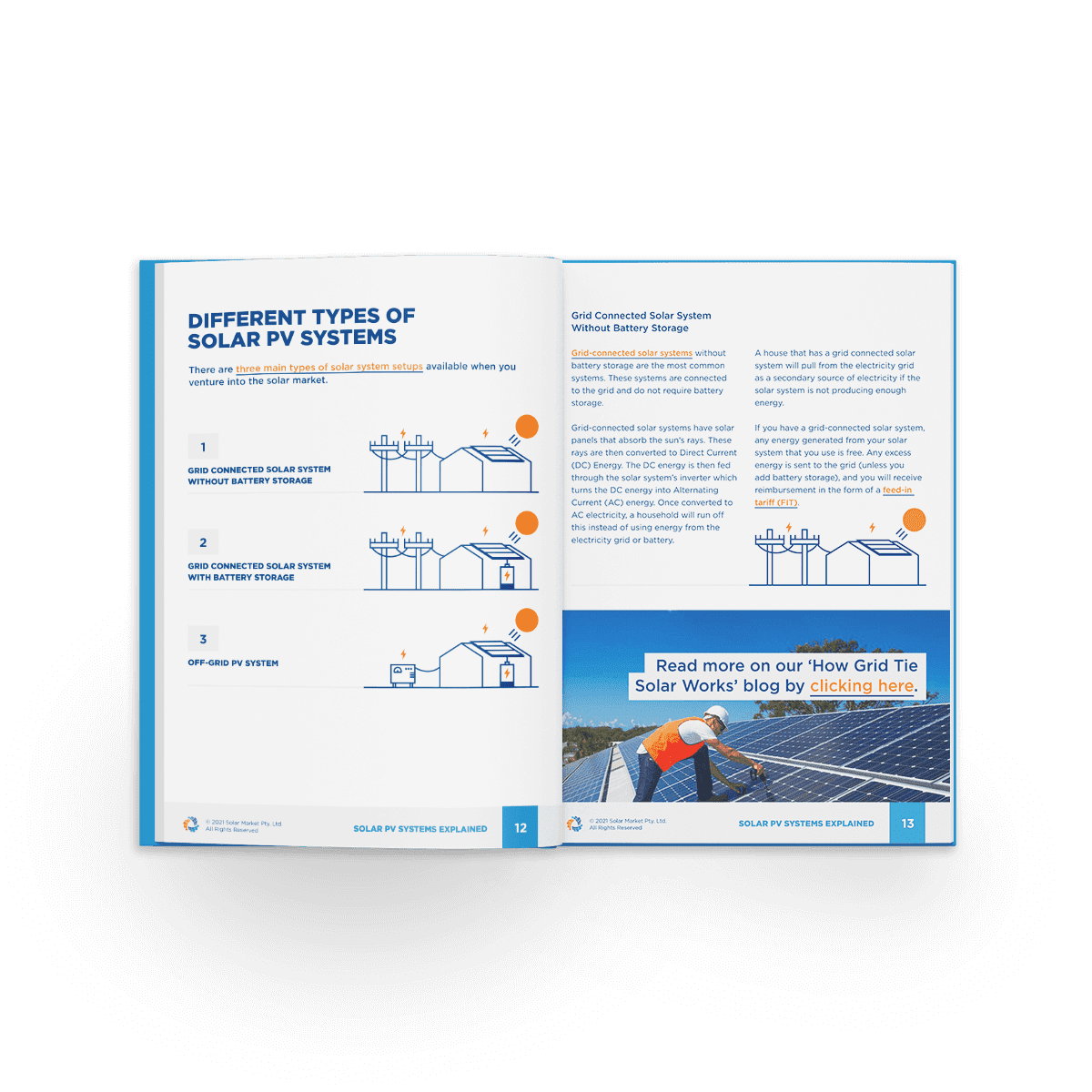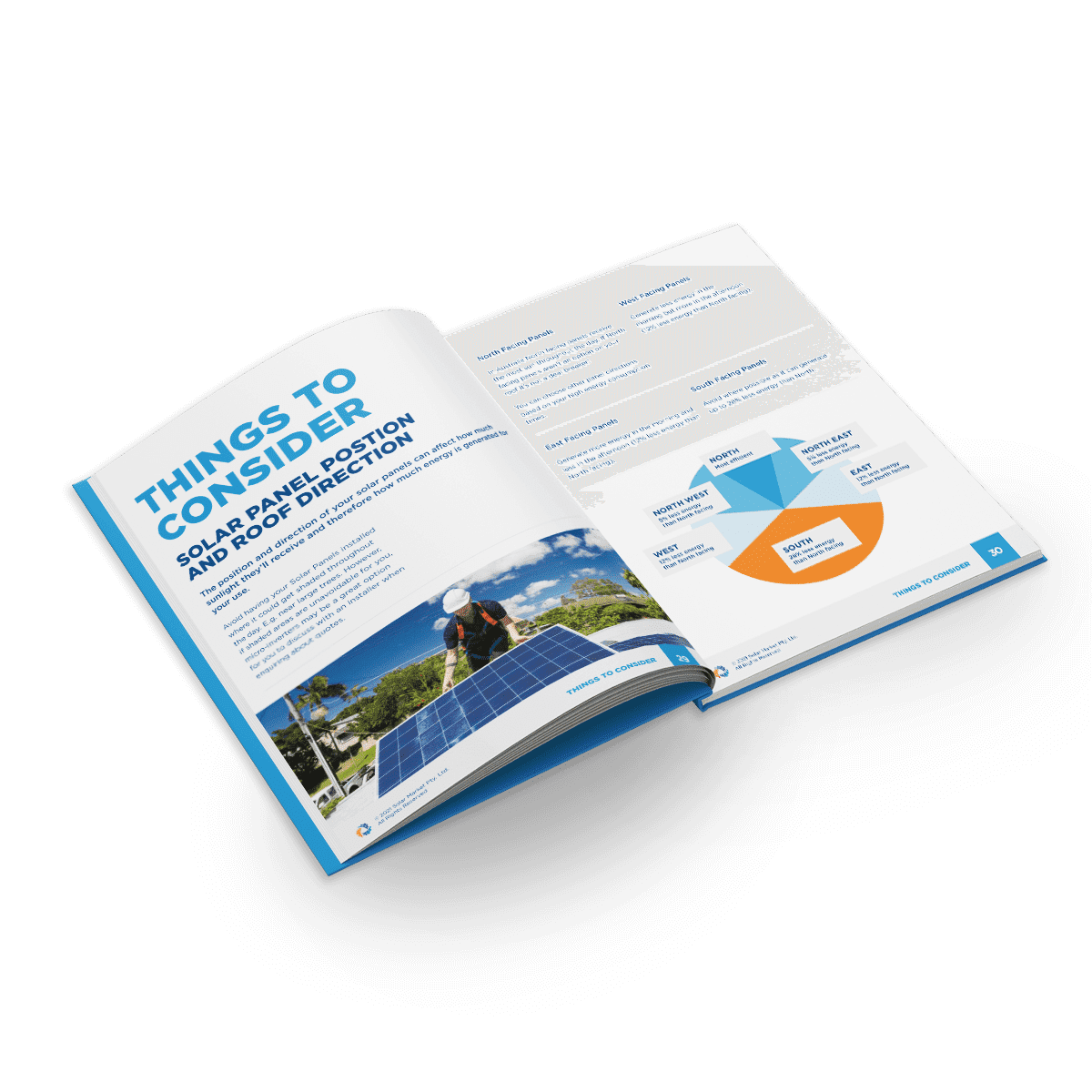There are three main types of solar system setups available when you venture into the solar market.
Which solar system will be most suitable to you will be dependent on your location, energy needs, budget and the reason you’re deciding to install a solar system.
Read the below advantages and functionalities of each solar system setup to determine which will be best for your household.
Grid-connected solar system without battery storage
Grid-connected solar systems without battery storage are the most commonly installed systems. These systems are connected to the grid and do not require a battery storage, however it is possible to add battery storage to a grid-connected solar system if the inverter is a hybrid and compatible .
How it works; grid-connected solar systems have solar panels that absorb the sun’s rays. These rays are then converted to Direct Current (DC) Energy. The DC energy is then fed through the solar system’s inverter which turns the DC energy into Alternating Current (AC) energy. Once converted to AC electricity a household will run off this instead of energy from the electricity grid or battery.
A house that has a grid connected solar system will pull from the electricity grid as a secondary source of electricity if the solar system is not producing enough energy.
If you have a grid-connected solar system, any energy generated from your solar system that you use is essentially free. Any excess energy is sent to the grid (unless you have battery storage) and you will receive reimbursement in the form of a Feed-in Tariff (FIT).
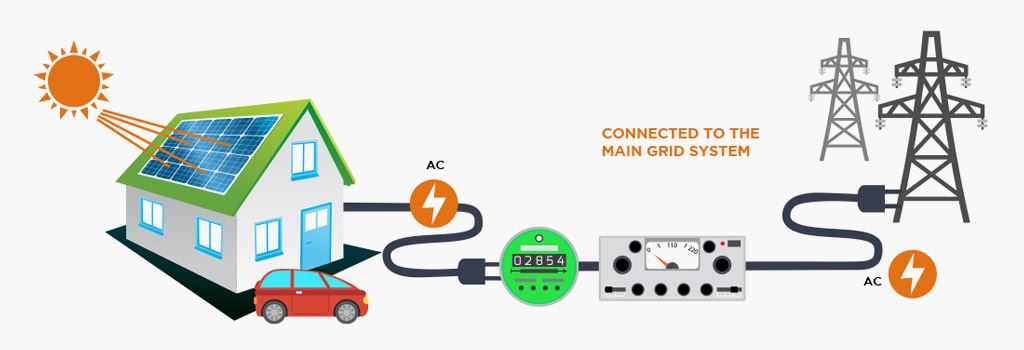
Grid-connected solar system with battery storage
A grid-connected solar system with battery storage is sometimes referred to as a Hybrid Solar System.
These solar systems work similar to the above grid connected solar system setup but with the added benefit of battery storage for any excess energy generated by the solar system.
A grid-connected solar system with battery storage, stores the excess energy generated by a solar system for the home to use when the solar panels are not generating electricity from the sun e.g. at night.
How it works; grid-connected solar systems with battery storage have solar panels that absorb the sun’s rays. These rays are then converted to Direct Current (DC) Energy. The DC energy is then fed through the solar system’s inverter which turns the DC energy into Alternating Current (AC) energy. Once converted to AC electricity a household will run off this instead of energy from the electricity grid or battery.
If some of the energy generated by the solar system is not used by the household, it is then stored in the battery as a second source of electricity for use when the solar system is not generating energy e.g. at night. If the battery does not have enough energy for the household to run when the solar system is not producing energy, the house will then pull electricity from the grid as a third source of electricity.
Adding battery storage to a grid connected solar system gives a household more energy independence and less reliance on the electricity grid and energy retailers, but with the added safety net of being able to pull electricity from the grid, in times when a solar system is not producing enough energy.
TIP: Batteries such as Sonnen, Tesla Powerwall 2, Senec and Enphase can be added to any existing system regardless of the existing solar inverter.
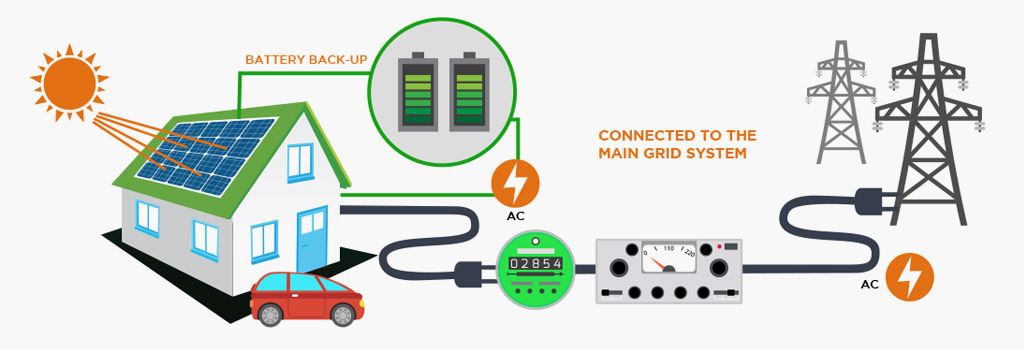
Off-grid solar system
An off-grid solar system, is also called a stand-alone system. These types of solar systems are not connected to the grid and require battery storage. Off-grid solar systems are usually only found in rural areas that have difficulties connecting to the grid.
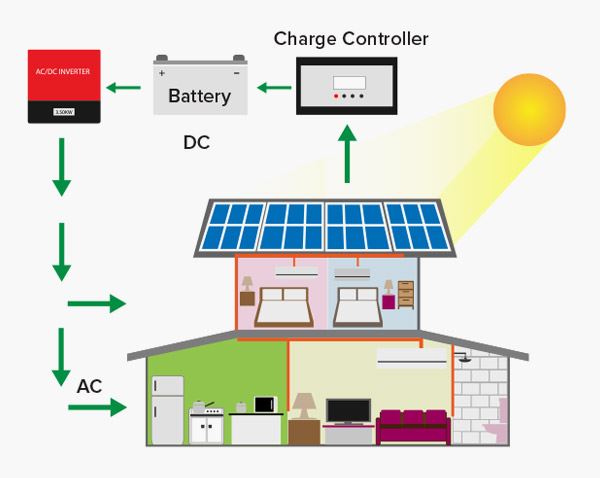
For a household to run on a off-grid solar system the solar system must be designed to be able to produce enough energy for the household to run, as well as enough excess energy to fully charge the battery, so that the household will have power when the solar system is not generating enough or any energy.
A household with an off-grid solar system does not have the electricity grid to fall back on as a third source of electricity, so it must have a big enough solar array and battery storage system in place.
Some off-grid households have backup generators installed as a third energy source, however these can be expensive to buy and to run.
Whilst going off-grid and having complete energy independence sounds appealing, it can be unrealistic and not cost effective for most households.
Before deciding to go off-grid there are some things you must consider first:
- Off-grid solar systems and setups are substantially more expensive than grid-connected systems
- The system, batteries and back-up generator can set you back over $30,000
- Return on investment can be substantially longer
- To go off-grid you’ll need to go rural or have a large block of land to accommodate for the size of the system
- Your local council and Distribution Network Service Provider (DNSP) may need to provide permission dependent on your location
Read more on our “Is going off-grid worth it” page.
